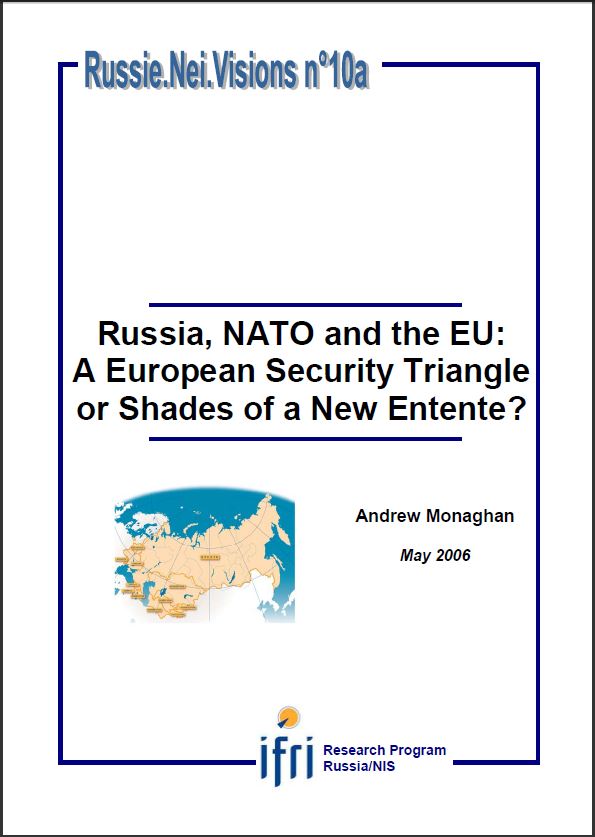Russia, NATO and the EU: A European Security Triangle or Shades of a New Entente?

The relationships between the EU, NATO and Russia are of great significance for all their actors and for regional security more broadly. The overlapping remit of each is complementary, and provides a potentially beneficial way to address current military and soft security concerns. And indeed good progress has been made —formal relationships have been established and there has been some practical cooperation in a number of areas. This progress is particularly impressive when considered in appropriate historical context— i.e. against the backdrop of East-West confrontation. Few would have foreseen such progress fifteen or even ten years ago. However, there is no 'triangle' —ambiguity and contradiction mar all the relationships, which are dogged by a number of conflicting interests. Moreover, although the top leadership of all three entities profess the desire to enhance the relationships, it is clear that a number of constituencies on all sides do not seek similar developments, for a number of reasons. This has slowed cooperation significantly. EU-NATO cooperation therefore remains problematic, and the West's relations with Russia are by no means past some 'point of no return', to the confrontation of the past half century.
Download the full analysis
This page contains only a summary of our work. If you would like to have access to all the information from our research on the subject, you can download the full version in PDF format.
Russia, NATO and the EU: A European Security Triangle or Shades of a New Entente?
Related centers and programs
Discover our other research centers and programsFind out more
Discover all our analysesThe Caspian Sea as an Emerging Energy Hub : Potentials and Limitations
This report analyzes the prospects of the Caspian Sea region — and its key actors except for Russia and Iran — becoming an important energy hub serving the needs of the European Union (EU).
The European Union's Strategic Test in Georgia
The political crisis brewing in Georgia is of an existential nature for the country. What is at stake is Georgia's future as a democratic and sovereign European nation (EU).
Commanders of Putin's Long War: Purged, Reshuffled and Disgruntled
The trend of reshuffling the Russian top military command in the course of a fast-evolving and far from successful war has progressed unevenly both across the Armed Forces’ structures and in time. The rationale for and timing of the abrupt cadre decisions made by Commander-in-Chief Putin often defy logical explanation, and the rare official clarifications are no more informative than the usual information blackout.
Russian Military Manpower After Two and a Half Years of War in Ukraine
In addition to a military victory in Ukraine, the Russian leadership is planning to build up sizable troop formations for a possible conflict with NATO in the Baltic region and the Kola Peninsula. In particular, current plans aim for the military manpower to grow by about 350,000, reaching a total of 1.5 million soldiers and commanders. In the context of the current conflict in Ukraine, this cannot be accomplished without a new wave of mass mobilization.









